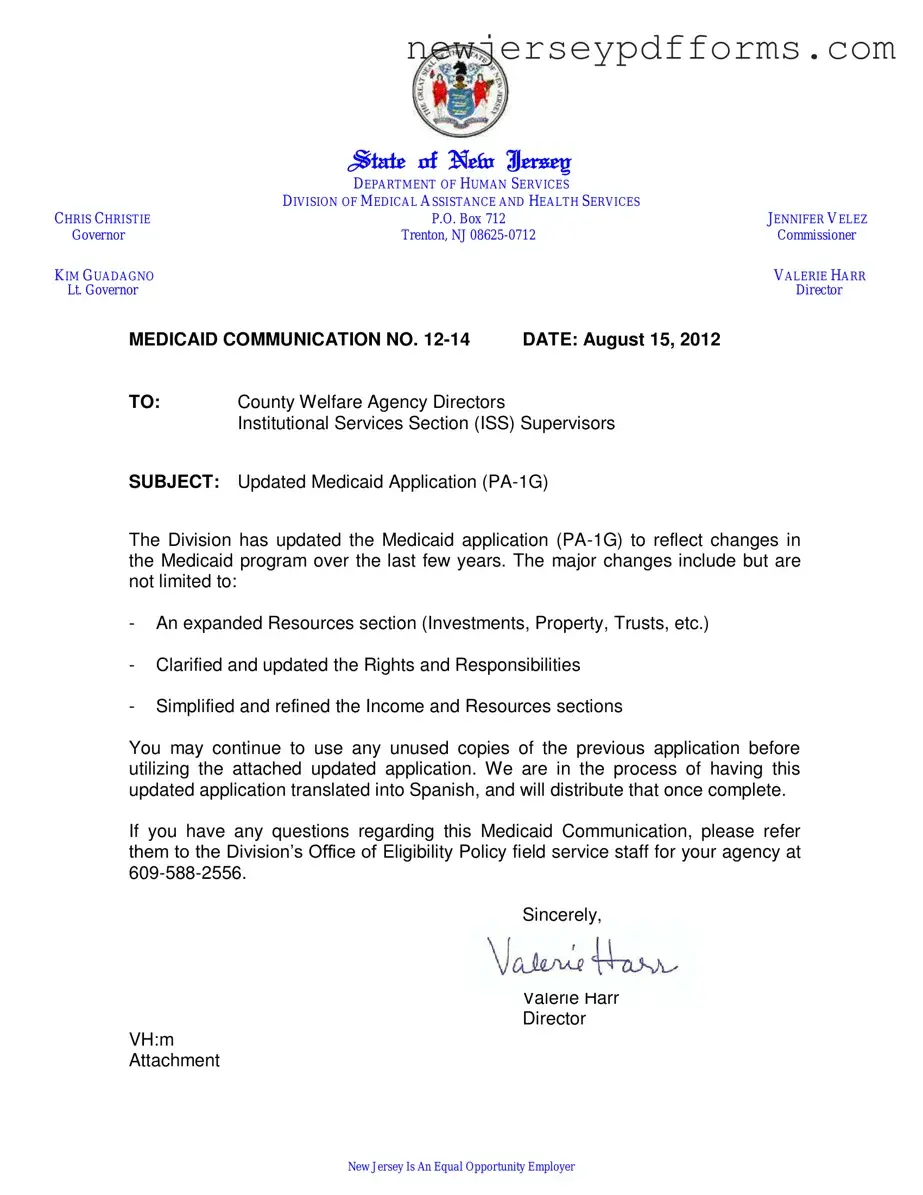What is the NJ PA-1G form?
The NJ PA-1G form is the updated application for Medicaid in New Jersey. It is used by individuals seeking assistance through the Medicaid program. This form collects essential information about the applicant's income, resources, living arrangements, and disability status to determine eligibility for various Medicaid services.
What changes have been made to the NJ PA-1G form?
The NJ PA-1G form has undergone several updates to reflect changes in the Medicaid program. Key updates include an expanded Resources section that covers investments, property, and trusts. The Rights and Responsibilities section has been clarified, and the Income and Resources sections have been simplified for easier completion.
Who should fill out the NJ PA-1G form?
Individuals who need assistance from the Medicaid program should fill out the NJ PA-1G form. This includes those with disabilities, low-income individuals, and families seeking health care services. If you are applying on behalf of someone else, such as a child or a dependent, you may also complete this form.
How do I submit the NJ PA-1G form?
After completing the NJ PA-1G form, you can submit it to your local County Welfare Agency. You may choose to deliver it in person, send it by mail, or, in some cases, submit it electronically if your agency allows for that option. Make sure to keep a copy for your records.
What information do I need to provide on the NJ PA-1G form?
The NJ PA-1G form requires various personal details, including your name, contact information, Social Security number, and marital status. You will also need to provide information about your income, assets, living arrangements, and any disabilities. It is essential to answer all questions truthfully and accurately, as this is a legal document.
Can I use an old version of the NJ PA-1G form?
Yes, you can still use any unused copies of the previous version of the NJ PA-1G form until you have access to the updated application. However, it is advisable to use the most current version to ensure that you meet all the requirements and provide the necessary information.
What if I have questions while filling out the NJ PA-1G form?
If you have questions while completing the NJ PA-1G form, you can reach out to the Division’s Office of Eligibility Policy. They can provide guidance and clarify any uncertainties you may have. The contact number is 609-588-2556.
Is there a Spanish version of the NJ PA-1G form?
The Division of Medical Assistance and Health Services is in the process of translating the NJ PA-1G form into Spanish. Once the translation is complete, it will be distributed to ensure that Spanish-speaking individuals can access the Medicaid application more easily.
What happens after I submit the NJ PA-1G form?
After you submit the NJ PA-1G form, the County Welfare Agency will review your application. They will verify the information you provided and determine your eligibility for Medicaid services. You may be contacted for additional information or clarification during this process. Once a decision is made, you will be notified of the outcome.

